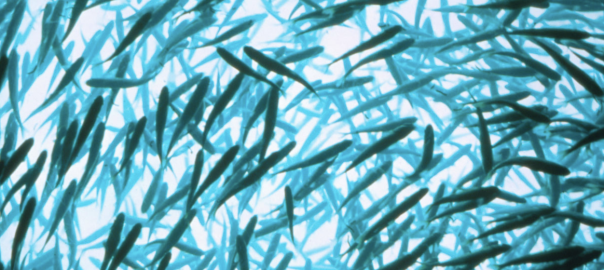Reporting by Helen Hill for the MIT Darwin Project
Fisheries provide a significant source of protein for over half of the world’s human population, yet the impacts of historical overfishing and climate change challenge the future productivity of the world’s oceans. Traditional fisheries management rests on the assumption that the future will look like the past, however, with advances in AI (artificial intelligence) and burgeoning data resources, scientists have new tools for exploring a greater range of future scenarios, including climate change.
In fisheries stock assessment, scientists analyze data on fishery abundance and catch to determine how many fish can be taken while sustainably maintaining a population. This ‘decision analysis’ weighs several objectives, including the goal of maximizing catch while minimizing the probability that the stock will decline below specific thresholds. While conceptually straight forward, some complications arise, for example in choosing the time-frame over which to analyze this trade-off and how to incorporate uncertainties in future population growth, mortality, and the uncertainty associated with current estimates of population size. The decision analysis becomes more challenging still as scientists look towards a future projected to bring even more sources of uncertainty.
In a new paper, available this week in the Proceedings of the National Academy of Sciences, Greg Britten, a postdoc working in the Darwin Project Group at MIT, together with researchers Milad Memarzadeh and Carl Boettiger (Berkeley) and Boris Worm (Dalhousie University) have applied computational methods from AI and robotics to more robustly tackle the fisheries decision problem in the presence of multiple sources of uncertainty.
“In decision theory, we can mathematically formulate the decision optimization in terms of the ensemble of branching future scenarios from a present decision; yet in practice, optimizing the resulting equations is extremely difficult and sometimes impossible,” Britten explains. “In this paper, we applied recently developed numerical techniques from AI to approximate the optimal decision to fisheries harvesting in the presence of uncertainty.”
Britten, who helped develop and statistically train the probabilistic population model that underlies the decision analysis applied in the paper, says their population model uses historical data of global fisheries abundance to estimate population-specific growth and mortality parameters that are then used to project the productivity of the population forward in time. His co-authors then combined these forward projections with different fishing scenarios to find the optimal fishing scenario that maximizes the probability of maintaining high catches into the future in the presence of multiple sources of uncertainty.
Applying their method to time series of 109 global fish populations, the team found their methods outperformed other approaches typically used in fisheries management. In particular, the researchers found that the decision theory solution can increase the fraction of stocks predicted to recover by 2050 by up to 30% over traditionally applied management methods.
“This increase occurs primarily due to the higher probability of avoiding catastrophic population collapse when accounting for the larger range of future biological and environmental uncertainty,” Britten explains. “Roughly speaking, our algorithm re-discovered the ‘precautionary principle’ for fisheries management, where it ultimately pays to err on the side of cautious harvesting when future conditions are uncertain – something that traditional fisheries management has often failed to do.”
Looking beyond fisheries, Britten says their analysis quantitatively demonstrates the benefits of the precautionary approach. As the effects of climate change increase, he says, and with it, uncertainty about the future environment, studies like this will allow society to better brace for the impacts. “We hope this paper serves as a stepping stone to greater application of these methods to fisheries, wildlife conservation, and environmental decision making more generally,” says Britten.
To find out more about this work contact Greg
Publication:
Milad Memarzadeh, Greg Britten, Boris Worm, Carl Boettiger (2019), Rebuilding Global Fisheries Under Uncertainty, PNAS, doi: 10.1073/pnas.1902657116
